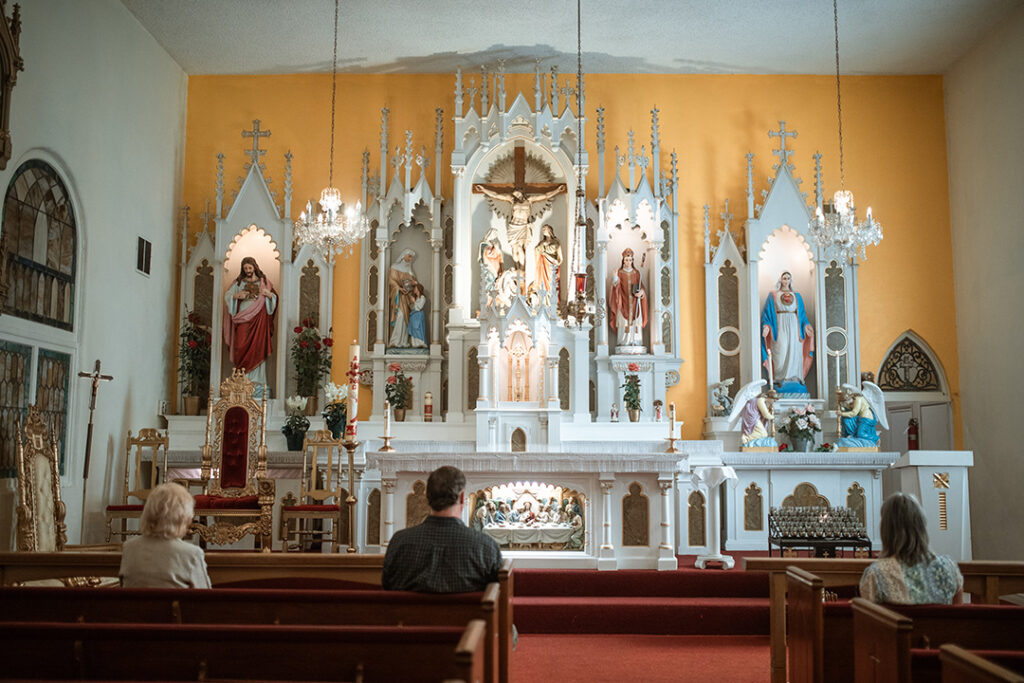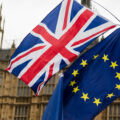Religion and census politics in Europe
Religion and census politics in Europe
Our analyst Muhammad Faisal Khalil looks at how the UK population census is politicised in Europe over concerns of religious and political identity.
This weekly comment was written by Muhammad Faisal Khalil and reflects his personal analyses and opinions, rather than those of EARS.
In ‘Imagined Communities’, Benedict Anderson argued that the census, alongside maps and museums, is a key institution that the state uses to create a shared imagination for its nation.[1] The UK’s Office for National Statistics (ONS)’s recent revelation that for the first time, less than half of people (46.2%) in England and Wales consider themselves Christian[2] has stirred debate over what Britishness is.
Does the census say Christianity is declining?
The census data ignited a debate over whether Christianity was on the decline in the UK or not. Academics, such as Andrew Davies, Professor of Public Religion at the University of Birmingham, argue that the census only reflects the increasing comfortability of Britons with imagining their Britishness without Christianity.[3] The Church of England recognises this but also adds that Britons who no longer regard themselves as Christians nevertheless see Christianity as the source of British life’s spirituality and values.[4] Bolstered by the finding that more than one in three (37%) people say that they have no religion,[5] secularism campaigners declared the UK as “one of the least religious countries on Earth,”[6] and called for a state that no longer formally recognises itself with Christianity.[7]
Is a decline of Christianity a decline of Britishness?
Another concern stirred by the census was whether a decline in Christianity means a decline in Britishness. This concern was frontlined by right-wing figures, such as the former leader of the UK Independence Party (UKIP) Nigel Farage and conservative commentator Douglas Murray, who argued that the decline in Christianity was a direct result of rising immigration.[8] [9] Ignoring that the census showed that the rise in non-religion was the reason why Christianity has lost ground, they claimed that Christianity was undermined by Muslims and Hindu immigration into the UK. While the census showed that Muslims grew to 6.5% and Hindus to 1.7%, it was not only caused by immigration but also by population growth of British Muslims and British Hindu communities.
Census and political identity in Europe
The debate over national and religious identity in the UK is an example of how census data has been used to shape political identity in Europe. For example, political identity has become a crucial problem for European countries with large and growing Muslim populations. Intellectuals and politicians, for example, have used the census data of its large Muslim population[10] – Europe’s largest – with the idea of a Muslim takeover of France. This idea has been so persuasive that it has galvanised theories of replacement in the country, such as French author Renaud Camus’s ‘Le Grand Remplacement’ (The Grand Replacement).[11] Camus theorises genocide by substitution[12] of ethnically-white Europeans, who would be replaced by non-European Muslims. French novelist Michel Houellebecq applied this theory explicitly to French politics. In his 2015 bestseller, ‘Soumission’ (Submission),[13] Houellebecq tells the story of the 2022 presidential election: with the help of left-wing collaborators, Islamist politicians take over France and make sweeping changes that introduce Muslim practices and privilege.[14] [15] Right-wing political leader Marine Le Pen cautioned that Soumission’s fiction “could one day become reality” in France.[16]
Census and immigration
While the recent census in the UK fostered a debate of Christianity vs. Secularism, it also triggered the political debate against immigration. On the same day as the census was published, the immigration think tank and campaign group, MigrationWatch UK, headlined their reaction “Census Reveals the Massive Impact of Immigration on Our Society,”[17] arguing that the British population had plateaued and that any population increase in the country was the result of immigration. Now, they explained, white British are a minority in the UK’s major cities of London, Birmingham, and Manchester.[18] It can be argued, therefore, that the idea of the arrival and rise of an ‘outsider’ population remains a powerful one in Europe. Moreover, the politicisation of census data has become an important driver of this idea.
This weekly comment was written by Muhammad Faisal Khalil and reflects his personal analyses and opinions, rather than those of EARS.
Interested in similar topics? Go to our Dashboard.
[1] Imagined Communities: Reflections on the Origin and Spread of Nationalism
[2] Ethnic group, national identity, language, and religion: Census 2021 in England and Wales – GOV.UK
[3] Is religion dying in England and Wales? – University of Birmingham
[4] Census: Christians a minority in England; non-religious grow | AP News
[5] Ethnic group, national identity, language, and religion: Census 2021 in England and Wales – GOV.UK
[6] Non-religious surge: 37% tick ‘No religion’ in 2021 Census – UK among least religious countries in the world » Humanists UK
[7] Non-religious surge: 37% tick ‘No religion’ in 2021 Census – UK among least religious countries in the world » Humanists UK
[8] Incendiary claims about the UK census do not reflect reality | Financial Times
[9] Incendiary claims about the UK census do not reflect reality | Financial Times
[10] Approximately 5.72 million Muslims live in France. See Muslim populations in European countries Statistic | Statista
[11] Renaud Camus – Le Grand Remplacement (troisième édition)
[12] How France’s ‘great replacement’ theory conquered the global far right
[13] Soumission – Michel Houellebecq – Babelio
[14] Soumission – Michel Houellebecq – Babelio
[15] Soumission – Michel Houellebecq – Babelio
[16] Paris terror attack: Controversial book launched on same day as attack
[17] Migration Watch UK Blog | Census reveals the massive impact of immigration on our society
[18] Migration Watch UK Blog | Census reveals the massive impact of immigration on our society






